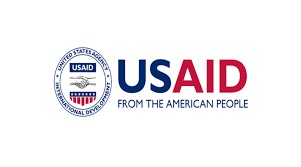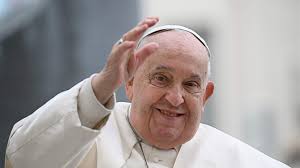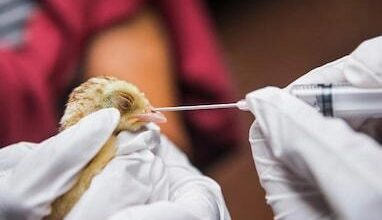USAID funding cut threatens development programmes in Nigeria

Emotions have continued to trail the recent Executive Order by President Donald Trump to halt foreign aid to African countries as thousands of employees at the US Agency for International Development (USAID) are to commence on compulsory leave from Friday, February 7, 2025.
The sudden halt the USAID funding to organizations outside the US has sent shockwaves through Nigerian development programmes circles with several local organisations that rely entirely on the agency’s funding being forced to dismiss staff, cancel programme activities, and abandon life-saving interventions, raising fears of a humanitarian and development crisis.
While some stakeholders have condemned the step taken by the US government, citing implications for the common people who are the main beneficiaries of the programmes, some insist it serves as a wake-up call for Nigeria and other African countries to begin to look inward.
Findings by Vanguard revealed that the order has also sparked fear of people losing their jobs due to the setback this might cause to Non -governmental organisations that are affiliated to USAID in Nigeria.
Presently, some of these organisations have shutdown, waiting for further directives from their funders. For example, a family planning training programme planned for Abuja by one of such organisations was abruptly cancelled just two days before its launch due to the funding freeze.
The USAID programmes are crucial for global development, promoting U.S. national security and economic prosperity while empowering self-reliance in recipient nations.
In Nigeria, USAID focuses on economic growth, food security, health, governance, gender equality, renewable energy, and stability in conflict-affected areas.
Nigeria is 6th among the top countries that are the highest beneficiaries of USAID. In 2023, Nigeria received $1.02 billion, much of it through agencies like USAID.
For instance, USAID’s initiatives in Nigeria address key challenges through various programmes. The Feed the Future Initiative boosts agricultural productivity and market access for farmers, improving incomes and food security.
USAID also works to enhance trade by supporting customs reform and improving transportation infrastructure, while also boosting private sector capacity and export opportunities.
The E-WASH project tackles urban water and sanitation issues in six states, aiming to provide clean water access to millions of Nigerians.
In the health sector, USAID works to improve access to family planning, reproductive health services, and immunisations. They also collaborate with various partners to strengthen Nigeria’s capacity to manage tuberculosis cases and reinforce primary health care. These multifaceted programmes demonstrate USAID’s commitment to Nigeria’s development, fostering empowerment, resilience, and a brighter future.
Sadly, if the executive orders pass through after 90 days, these programmes will suffer, although the Nigerian government said it has launched a committee to develop a transition and sustainability plan for USAID-funded health programmes following. .
Speaking to Vanguard in Lagos, the Chairman of the Management Committee Association for the Advancement of Family Planning, Dr Ejike Orji said the sudden freeze has disrupted critical programmes for organisations that depend on USAID for 100 per cent of their funding.
“With no notice, staff salaries would be cut, advocacy campaigns halted, and vital training programmes cancelled.
Orji said: “For example, a family planning training program planned for Abuja was abruptly cancelled just two days before its launch due to the funding freeze.
“We had everything in place—partners, participants, and logistics. But the funding halt forced us to scrap the programme entirely. The ripple effects will be felt across the communities we were meant to serve.”
Orji explained that similar programmes in Lagos, Sokoto, Bauchi, and other regions, aimed at building civil society advocacy for family planning and immigration reform, have also been indefinitely postponed.
He said the health sector, a key focus of USAID’s support in Nigeria, is currently facing devastating consequences. USAID provides 80 per cent of Nigeria’s resources for managing diseases like HIV and malaria. The withdrawal of these funds threatens to undo decades of progress.
He warned that without USAID support, there would be an immediate crisis.
“Nigeria has one of the highest numbers of people on antiretroviral drugs in Africa. A disruption to this supply could result in a surge of HIV-related deaths and new infections.”
The impact extends beyond HIV. Family planning programmes are also in jeopardy, potentially leading to a rise in unintended pregnancies and maternal mortality.
“The loss of funding for family planning will lead to more children being born into poverty, increasing Nigeria’s population growth rate and straining public resources,” said Orji.
Noting that agriculture and food security were already threatened, he said in addition to health, agriculture programmes supported by USAID are also facing uncertainty.
These programs, he said provide farmers with training, resources, and market access, and play a crucial role in ensuring food security for millions.
The loss of agricultural funding will push vulnerable communities further into poverty,” the development expert stated.
“Without these interventions, smallholder farmers will struggle to adapt to climate change and improve productivity.”
Stating that the Nigerian government has established a committee to assess the fallout and explore mitigation strategies, he said while the move is welcomed, more decisive action is needed.
“This is a wake-up call for African countries. We cannot continue to depend entirely on foreign aid. The government must step up and prioritize local funding for critical sectors,” Orji said.
Stating that the committee is also considering alternative funding sources and partnerships to fill the gap left by USAID, he said implementation challenges remain, and time is of the essence.
“The crisis raises concerns about the long-term impact on Nigeria’s development goals. In the short term, health outcomes will deteriorate, while in the long term, the loss of funding could undermine efforts to eradicate HIV and achieve sustainable population growth.
“This isn’t just about money. It’s about lives. It’s about the future of a nation. The government must act swiftly to prevent a full-blown disaster.”
Orji noted that while USAID’s funding freeze stems from political and budgetary constraints in the United States, its impact on countries like Nigeria is profound.
According to him, “Nigeria must learn to stand on its own. This is a painful but necessary lesson. It’s time to
invest in ourselves and take control of our destiny.”
Also commenting, the Director of Research at the Nigerian Institute of Medical Research, NIMR, Lagos, Professor Oliver Ezechi, said the removal of funding will impact negatively on the programmes in Nigeria.
He said a sudden withdrawal can disrupt ongoing services, leading to immediate gaps in care, particularly for vulnerable populations reliant on these essential health services.
Ezechi also argued that President Donald Trump’s executive order to stop funding for these programmes did not come as a surprise to many of them, rather, it was a day foretold.
He said for several years now, they have been informed that U.S. support for funding these programmes in various countries would continue to dwindle and may even cease entirely.
He said already, the various initiatives have indeed seen U.S. support decline over the years, lamenting that the problem is that governments of benefiting countries did not take the warning seriously and failed to gradually assume greater ownership.
“Let me put it in better perspective: although these governments started investing, they did not do enough, hence the panic following Trump’s executive order. Truly, the removal of funding will impact negatively on the programs. A sudden withdrawal can disrupt ongoing services, leading to immediate gaps in care, particularly for vulnerable populations reliant on these essential health services.
“The risks of increased morbidity and mortality from these diseases loom large, as the absence of support may spark a resurgence of these illnesses. Economically, health crises can strain national systems, resulting
in higher healthcare costs and lost productivity. Also, the loss of U.S. funding which often comes with technical expertise and support could undermine existing infrastructure and capacity-building efforts.
“However, there may be silver linings to this challenging situation. The cessation of U.S. funding could encourage countries to take greater responsibility for their public health initiatives, promoting a sense of ownership and accountability among these governments.
“This shift might prompt them to allocate more resources and develop sustainable funding mechanisms. In addition, with reduced reliance on U.S. support, countries could diversify their funding sources, seeking alternative partnerships with other international organisations, NGOs, or private-sector investments.”
He said while the transition may be fraught with immediate challenges, it could lead to a more resilient and self-sufficient approach to public health in the long run.
Meanwhile, to close the gaps, the Federal Executive Council (FEC) has approved $1.07 billion for healthcare sector reforms under the Human Capital Opportunities for Prosperity and Equity (HOPE) programme. The council also allocated N4.8 billion for HIV treatment, signalling a significant investment in Nigeria’s health sector.
The country has also launched a committee to develop a transition and sustainability plan for USAID-funded health programmes following the 90-day halt of most foreign aid. The multi-ministerial committee aims to secure new financial support for critical health programmes.
The committee comprises officials from the ministries of finance, health, and environment—intends to ensure that patients receiving treatment for HIV, tuberculosis, and malaria do not experience setbacks amid the uncertainty over U.S. foreign policy.




